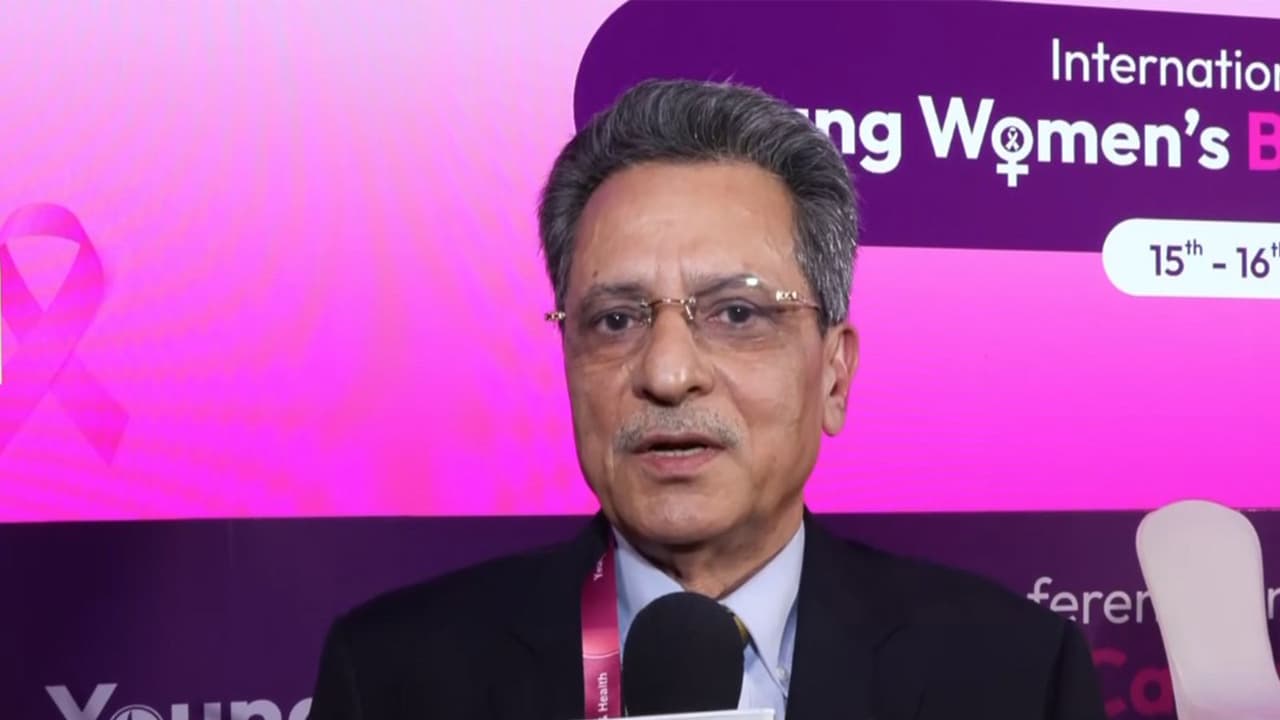Padma Shri awardee Dr Ashok Kumar Vaid warns of a rising tide of aggressive breast cancer among young Indian women, often diagnosed late. He urges lifestyle changes for prevention. Survivor Mahima Chaudhary highlights the critical role of early screening.
Padma Shri awardee Dr Ashok Kumar Vaid, Chairman, Oncology, Medanta Medicity, on Sunday underscored the rising incidence of aggressive breast cancers among young women in India. Dr Vaid attended the 2nd International Conference on Young Women’s Breast Cancer and Health in the national capital. The conference brought together oncologists, researchers, policymakers and survivors to discuss age-specific challenges, late diagnosis and the urgent need for strengthened screening pathways.
A Worrying Trend Among Young Women
According to a release, in India, breast cancer has become the most commonly diagnosed cancer among women, with a significant rise in cases among women under 45. More than one-fourth of breast cancer cases now occur in women below 40, a trend linked to lifestyle factors, delayed childbirth, reproductive changes, and limited awareness.
Lifestyle a Key Modifiable Risk
Dr Ashok Kumar Vaid highlighted the urgent need for awareness and prevention and lifestyle-linked risks. “This is a strong message to everyone that lifestyle is one of the most important modifiable risk factors for cancer. The way we live, the diet we consume, and the physical activity we engage in play a crucial role in preventing cancer,” Dr Vaid said.
Challenges in Early Detection
Younger women often experience aggressive tumour types, delayed diagnosis, and challenges in early detection due to dense breast tissue, resulting in late-stage presentations and poorer outcomes.
He said breast cancer is rising among young women and is often more aggressive, urging greater awareness, healthier lifestyles and proactive prevention. “Breast cancer among young women, especially those below 40, is rising and tends to be more aggressive. Women must become more breast-aware, adopt healthier lifestyles, and take proactive steps to prevent cancer, particularly breast cancer,” Dr Vaid added.
Survivor’s Story: Mahima Chaudhary on Early Screening
Bollywood actor and breast cancer survivor Mahima Chaudhary delivered a special session, sharing her personal journey to emphasise the value of early screening.
‘I Had No Symptoms’
Chaudhary said she had “no symptoms” and discovered her breast cancer during a routine annual check-up. “There were no symptoms. I didn’t go in for a breast cancer screening. I just went in for a yearly check-up. I had no clue I had breast cancer. Cancer is something that you can’t recognise on your own early. It can only be detected early through tests. So if you keep going in for a yearly check-up, you will be able to detect it early and seek early treatment,” she said.
She added that treatment options have expanded in recent years. “Since my diagnosis three to four years back, there has been a huge difference in cancer treatment in India. Many generic medicines are much cheaper now, you get better support from pharmaceutical companies, and there’s much more awareness of cancer,” Chaudhary said.
The actress said that she “got a lot of motivation” by hearing the stories of other people fighting strongly against cancer.
The Urgency of Early Detection
Despite advances in treatment, India continues to record high mortality rates due to late diagnosis. Experts emphasise that early detection through breast self-examination, timely clinical evaluation, and appropriate imaging can dramatically improve survival.
The conference will focus on strengthening awareness, refining diagnostic pathways, and shaping age-specific guidelines tailored to young women. (ANI)
(Except for the headline, this story has not been edited by Asianet Newsable English staff and is published from a syndicated feed.)
